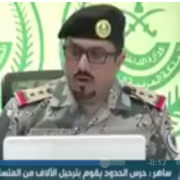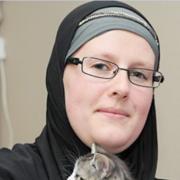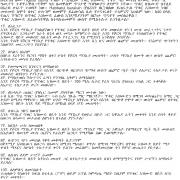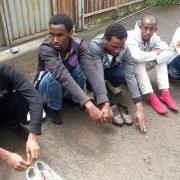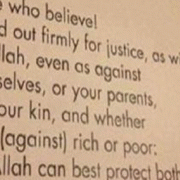onislam.net speak about Ethiopian Muslim( Analysts warn that the government harassment of Muslims risks stoking civil revolt in Ethiopia)
25/7/2012
The iron-fist policies of Ethiopian Prime Minister Meles Zenawi and harassment of the Muslim minority are fueling radicalization in Ethiopia and risk stoking civil revolt in the country, analysts agree.
“Heeding the demands of the protesters can resolve the issue,” Hassen Hussein, a human rights activist and assistant professor of leadership and management at St. Mary’s University of Minnesota, toldThe Washington Times on Wednesday, July 25.
Protests have rocked Ethiopia over the past weeks over government interference in the religious affairs of Ethiopian Muslims.
Last week, four Muslims were killed when Ethiopian police stormed into a mosque in the capital Addis Ababa to disrupt preparations for a city-wide program called Sadaqa (feast).Police also tried to storm the Anwar Mosque in the west of the capital on Saturday, prompting Muslims to gather to block their way in.
A week earlier, scores of Muslims were arrested after staging protests against government interference in their religious affairs.
In April, four Muslims were also killed in clashes with police in southern Ethiopia in protest at the arrest of a Muslim preacher.
Muslims say the government is spearheading a campaign in collaboration with the Supreme Council of Islamic Affairs to indoctrinate their community with the ideology of a sect called "Ahbash".
The government of Ethiopian Premier Meles Zenawi has put the Ahbash in charge of the religious affairs of Ethiopia's Muslims.
Muslims say the government move is in violation of the constitution, which prevents the government interference in religious affairs.
Muslims also accuse the Ahbash of launching an "indoctrination program" in predominantly Muslim areas, forcing people to attend "religious training" camps or risk police interrogation and possible arrest.
Founded by Ethiopian-Lebanese scholar Sheikh Abdullah al-Harari, Ahbash is seen by the West as a "friendly alternative" to Wahabi ideology, which the West sees as extreme and militant.
Muslims say Ahbash imams are being brought over from Lebanon to fill the Majlis and teach Ethiopians that “Wahabis” are non-Muslims.
Muslims make up about 34 percent of Ethiopia’s population.
African Spring
Analysts warn that the government harassment of Muslims risks stoking civil revolt in Ethiopia as happened in the Arab world.
“The protesters know that they have the support of the majority of the population so long as their demand is for civil liberties and democratic freedoms,” Hassan Hussein, an Ethiopian human rights activist, told The Washington Times.
“Other sectors could press similar demands, and it might escalate into calls for regime change as has happened in the Arab Spring.”
Complicating the risks are reports about the health of the Ethiopian premier, who was last seen in public several weeks ago appearing thinner than usual.
Last week, Communications Minister Bereket Simon said Zenawi’s health condition “is very good and stable”, but declined to go into specifics.
Opposition websites, however, say Zenawi, who has been in power since 1991, is terminally ill with brain cancer.
Jawar Mohammed, an analyst on Ethiopian affairs, said information from the Ethiopian government on Zenawi’s health and whereabouts is “conflicting and confusing.”
“All indications show that he has not been in charge of the state at least for a month,” he said.
“He has not been responding to the Muslim protests either.
“While the government claims that Meles will resume his duties soon, most people believe that the regime is just buying time for orderly succession.” Read more
Read more










